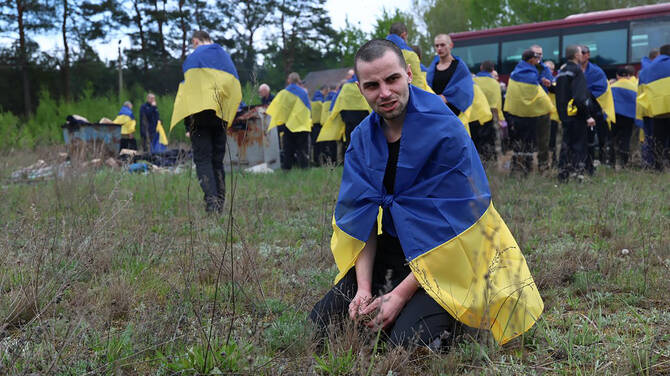TOKYO: Arab League Secretary-General Ahmed Aboul Gheit has called on Japan to recognize a Palestinian state.
He told a press conference in Tokyo: “That is the only solution; the apartheid, annexation and oppression committed by Israel are not feasible solutions.”
Aboul Gheit was speaking at the Japan National Press Club in Tokyo, where he will attend the 5th Japan-Arab Economic Forum.
He said that the Israeli occupation, oppression and persecution of Palestinians and Arabs since 1967 caused Hamas to attack Israel on Oct. 7.
“Israel has the urge and desire to suppress Palestinian hopes of independence,” he added. “We, however, are calling for the establishment of a Palestinian state.”
Aboul Gheit said that the Palestinian Authority is the recognized governing entity of the Palestinian people and that it was “natural” that the authority would return to Gaza with the help of the international community.
Two requirements were necessary to achieve this: “An international military force to help the PA take control of Gaza and an international consortium to help rebuild the horrific destruction in Gaza.”
The Arab League chief reminded the audience that millions of Palestinians are living in tents without hygiene, running water and daily necessities. “The PA should rule Gaza,” he said, adding that the position of Hamas had shifted because of the conflict in the enclave.
“Hamas itself came to the conclusion that the military confrontation was damaging the Palestinian population, so it had to seek to change its ideology,” Aboul Gheit said. “Europe and the Western world had to prevail over Israel. Hamas was helped by Israel to divide the Palestinians. They succeeded until this moment.”
All Israel will achieve through its war is killing, he said, adding that Hamas will attempt to regain its standing. “We need a political course to reconcile the differences between Hamas and the PA, and between both of them and Israel.”
Aboul Gheit also noted that resistance is praised in some instances and condemned in others.
“When you resist the Nazi occupation in Europe, like in France, Denmark and Norway, it is a resistance and they are freedom fighters, but in Palestine and Africa, it is terrorism. We need one name for that.”
Aboul Gheit warned that Israeli extremists want to expel Palestinians from their lands and populate the territories with settlers from Israel and the rest of the world.
“That will never happen,” he said. “On the contrary, the idea of a Palestinian state is gaining strength, and many European countries have recognized a Palestinian state. The Western world, at last, has had a change of heart.”
Now, he wants Japan, which he describes as “a very honorable and respected country,” to also have a change of heart and recognize a Palestinian state.



























